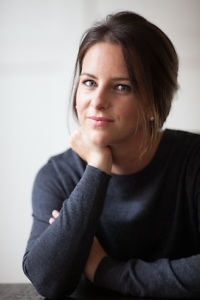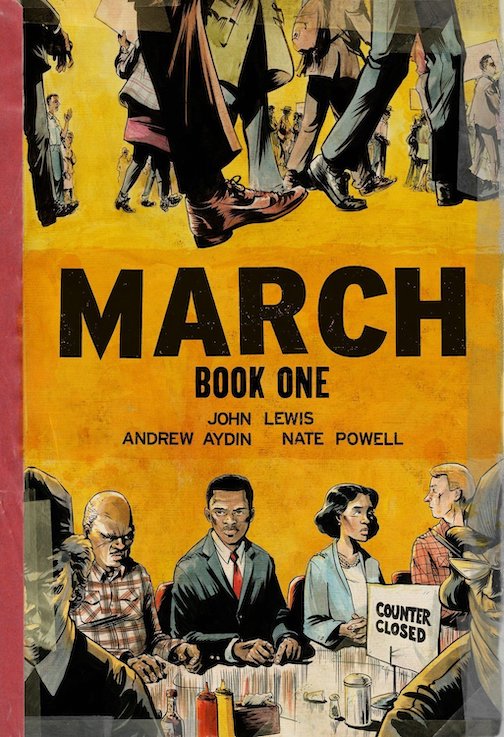All It Took Was an Invitation
Book Excerpt: Beyond the Point
The course of her fate had changed last fall, when a thin brunette woman arrived at the Centennial High School gymnasium. Though she hid in the shadows, the woman’s tall and thin silhouette was the picture of pure authority. Her dark hair was sliced with streaks of silver and cut short for easy maintenance. Close-set blue eyes with raised eyebrows made her look strangely alert. Her nose was small and upturned, softened by rosy lips and a quick smile. The femininity of her facial features was offset by the rest of her body: ungraceful and bony arms and legs mimicked the sharpness in her fingers. She was a beautiful woman, but intense, for sure. A hunter.

Unlike other university recruiters who’d leave halfway through practice, Catherine Jankovich stayed to the very end, through conditioning. When she stepped out of the shadows and introduced herself as the head women’s basketball coach at West Point, Dani was impressed by her stature.
West Point. Standing in front of the coach, Dani racked her brain to remember how she’d heard of it before. Eventually, a picture from her AP history textbook surfaced in her mind. Thomas Jefferson and George Washington had chosen West Point as a strategic position during the Revolutionary War. A hillside overlook onto a narrow hairpin turn in the Hudson River, West Point was the perfect position from which to capsize British ships as they tried to navigate north from New York City. Against her better judgment, she was intrigued.
“West Point?” repeated Dani. “Is that a high school?”
“No. It’s a college,” the coach said.
“They have a women’s basketball team?”
“Would I be here if we didn’t?” the coach said, setting her jaw slightly. “I know you’ve got a lot of other colleges trying to get you to pay attention to their programs, Dani. And that’s great. You deserve those choices. You’ve earned them. But I happen to think you need to go to a school that will serve you athletically, academically, and personally. West Point is not exactly a normal school. But I have a feeling that you’re not necessarily a normal girl.”
That in itself might have been enough to convince Dani to pack her bags and buy a pair of combat boots. But when the coach explained how West Point operated, Dani felt transfixed. An interested applicant couldn’t just apply—she first had to interview with her congressman or senator to receive a nomination. With that nomination in hand, an applicant could send on essays and transcripts and SAT scores to West Point’s admissions office. But even then, only 10 percent of applicants were accepted. Of those, less than 15 percent were female. As a university, West Point had a reputation for excellence, and its students went on to leadership in business, military, and government sectors. It wasn’t a normal school. It was better.
Coach Jankovich had insisted on flying her in for an official visit, and three weeks later, when she stepped on campus, her decision was made.
That day, the Hudson River was like a long glittering road, reflecting mountains on the east and granite on the west. Gray stone buildings towered over a green parade field, oozing with history and dignity. The campus teemed with handsome, athletic students in gray uniforms walking to class with full backpacks and square jaws. There were kids of every race, and girls like Dani, who didn’t seem to mind that they were wearing the same uniform as the guys.
 Dani’s mother had never been the type to cut out newspaper articles about Dani’s successes. Her ribbons and trophies had been lost or thrown away, not displayed around the house. “Let someone else praise you, and not your own mouth,” was Harper’s favorite proverb, a biblical reminder to her precocious daughter not to become a braggart. But walking around campus at West Point, Dani met the gaze of every cadet that passed her by, and saw in their eyes a familiar self-assuredness, like she was looking in a mirror. Here, confidence wasn’t a quality to hide; it was essential to survival.
Dani’s mother had never been the type to cut out newspaper articles about Dani’s successes. Her ribbons and trophies had been lost or thrown away, not displayed around the house. “Let someone else praise you, and not your own mouth,” was Harper’s favorite proverb, a biblical reminder to her precocious daughter not to become a braggart. But walking around campus at West Point, Dani met the gaze of every cadet that passed her by, and saw in their eyes a familiar self-assuredness, like she was looking in a mirror. Here, confidence wasn’t a quality to hide; it was essential to survival.
For twenty-four hours, a sophomore on the basketball team named Sarah Goodrich showed Dani around, answering her questions and introducing her to everyone they passed.
“What’s it like playing for Coach Jankovich?” Dani asked, right when they started walking to class.
“I don’t know. I haven’t played for her yet,” explained Sarah. “You know, this is her first year. You’re her star recruit.”
With dark black hair, fair skin, and striking green eyes, Sarah looked like Snow White in a military uniform. Over lunch, she told Dani that she was one of five siblings who had all attended West Point, and that even though she’d been recruited by a different head coach, she would have played for anyone, just to say she played at Army. A psychology major, she planned to be an intelligence officer in the Army after graduation.
“But that’s still two years away,” Sarah said knowingly. “A lot can change in two years.”
At other colleges, kids wore pajamas to class. Here, they wore “as for class”—a uniform of dark wool pants, a white collared shirt, and a flat wool cap with a shiny black bill.
“Then there’s gym alpha,” Sarah had continued, counting off the uniforms on her fingers. “Gray T-shirt, black shorts, ugly crew socks. Most of the time, I’m wearing gym-A. BDUs—that’s ‘battle dress uniform,’ and they’re the most comfortable. Then you’ve got full dress gray, which is the whole shebang, brass buttons, maroon sash, big feather on the hat. Sorry, am I going too fast?”
“Nope,” said Dani.
“Some girls take their uniforms home to get them tailored, but I don’t care that much. You get over it pretty fast. Looking like a dude.”
Dani laughed at the casualness of Sarah’s confidence. Her face shined with the kind of dewy skin normally seen in celebrity magazines, and when Sarah talked about West Point, it was like she was in some kind of secret club where everything had a code name. There were so many inside jokes and terms, Dani wondered if she would ever learn them all.
After shadowing her classes, Dani followed Sarah back to her dorm room, which was about as barebones as any Dani had ever seen. Two single beds sat on opposite sides of the room, wrapped tightly in white sheets and green wool blankets. Sarah explained that she rarely slept under the covers, since it took so long to make up her bed to regulation standards. Instead, she and her roommate both slept on top of the sheets with blankets they kept stowed in their trunks.
Two desks held identical government-issued desktop computers, part of every cadet’s incoming equipment. Sarah and her roommate both had wardrobes that housed their uniforms, hung in perfect order, the hangers evenly spaced two inches apart. Everywhere they went, doors opened and people shouted Sarah’s name—like she was famous.
“Is there anyone here you don’t know?” Dani asked. They were on their way to dinner in the mess hall, guided toward a pair of arched wooden doors by a row of lights and a stream of students. The autumn air felt just cold enough for a jacket, but Dani’s whole body felt warm and alive.
“That’s just how it is here. Four thousand students isn’t really all that many. You’ll see,” Sarah answered, reaching for the iron door handle. She paused and gave Dani a mischievous look. “You ready to see something crazy?”
Dani nodded and Sarah pulled the door open, revealing an expansive room of wood and stone. Inside, the mess hall walls stretched thirty feet high and were covered with golden lamps, state and Revolutionary War flags, oil paintings of epic battle scenes, and towering stained glass windows. The hall spanned the length of two football fields and it overflowed with the raucous, jovial sound of four thousand people breaking bread all at once. Cadets were seated ten to a table and there were 465 tables in perfect rows across six wings, likely in the same place they’d been for centuries. Each wing bustled with clinking plates, glasses, and silverware. Steaming dishes passed from one hand to the next, family style. One homemade pie rested in the center of every table, waiting for a knife.
“Come with me,” Sarah said in Dani’s ear. “We’ve got to get all the way to the back.”
In the back wing of the mess hall, the noise increased by a few decibels. On the far left, Dani identified the football team: hefty boys nearly busted out of their uniforms and chairs, shoveling food into open mouths. The men’s and women’s lacrosse teams sat on the right, the boys leaning back in their chairs, roaring at some joke, the girls leaning forward, rolling their eyes. Sarah guided Dani toward a sundry crowd of girls—some tall, some muscular, some white, some black—that filled three tables in the center of the wing.
“Save yourself!” someone shouted from another table. “You’ll hate it here!”
“Ignore them,” Sarah said. “Of course everyone hates it here. But we love it too. It’s hard to explain.”
When Sarah introduced Dani to the team, they quickly pulled out a chair for her to join them.
That’s all it took. An invitation and an empty chair.
[Read Chapter 16‘s review of Beyond the Point here.]
 Copyright (c) 2018 by Claire Gibson. All rights reserved. Claire Gibson grew up at the United States Military Academy at West Point, where her father was a professor. Her work has appeared in The Washington Post, The Christian Science Monitor, and Entrepreneur Magazine, among others. Beyond the Point, her debut novel, will be published on April 2, 2019. She lives in Nashville.
Copyright (c) 2018 by Claire Gibson. All rights reserved. Claire Gibson grew up at the United States Military Academy at West Point, where her father was a professor. Her work has appeared in The Washington Post, The Christian Science Monitor, and Entrepreneur Magazine, among others. Beyond the Point, her debut novel, will be published on April 2, 2019. She lives in Nashville.


